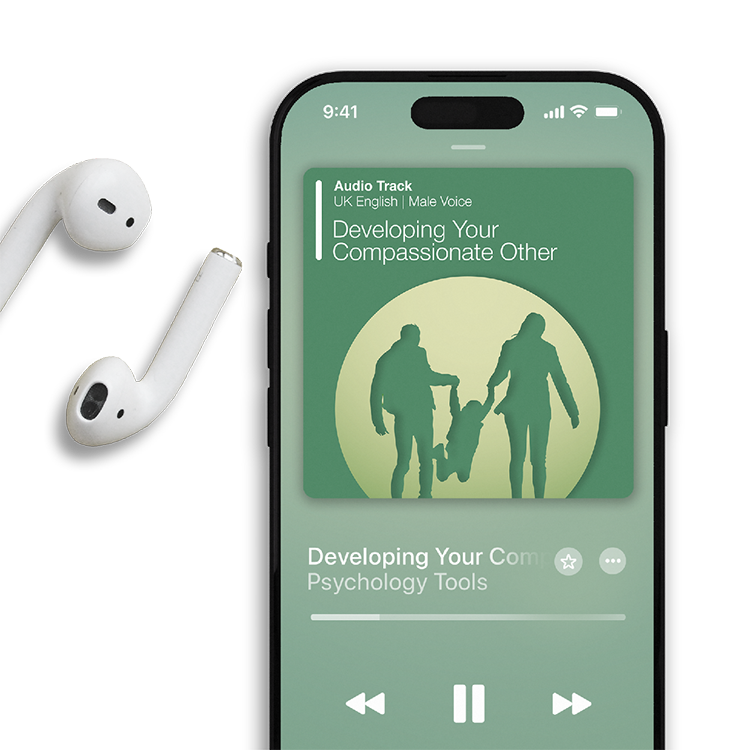Audio track (MP3)
A therapy audio track designed for skills development.
Audio script (PDF)
The script for a therapy audio track. Read along with an exercise, or record in your own voice.
This audio exercise guides the listener to create a 'compassionate other' in order to experience care and support. Taken from the Psychology Tools For Developing Self-Compassion audio collection.

A therapy audio track designed for skills development.
To use this feature you must be signed in to an active account on the Advanced or Complete plans.
The script for a therapy audio track. Read along with an exercise, or record in your own voice.
To use this feature you must be signed in to an active account on the Advanced or Complete plans.

Self-compassion is a helpful skill for emotional well-being. The Psychology Tools For Developing Self-Compassion audio collection provides a structured approach to developing self-compassion using principles from compassion focused therapy (CFT). CFT is an evidence-based psychological approach that integrates evolutionary, cognitive, and affective neuroscience to help individuals cultivate compassion and alleviate high levels of shame and self-criticism.
Developing Your Compassionate Other focuses on creating a 'compassionate other' — a mental image that embodies care and support. Research indicates that envisioning comforting figures, whether real or imagined, can mimic the stress-reducing effects of soothing personal interactions. This structured exercise supports clients in developing such beneficial images to aid in their development of self-compassion.
Just enter your name and email address, and we'll send you Developing Your Compassionate Other (English GB) straight to your inbox. You'll also receive occasional product update emails wth evidence-based tools, clinical resources, and the latest psychological research.
Working...
This site uses strictly necessary cookies to function. We do not use cookies for analytics, marketing, or tracking purposes. By clicking “OK”, you agree to the use of these essential cookies. Read our Cookie Policy